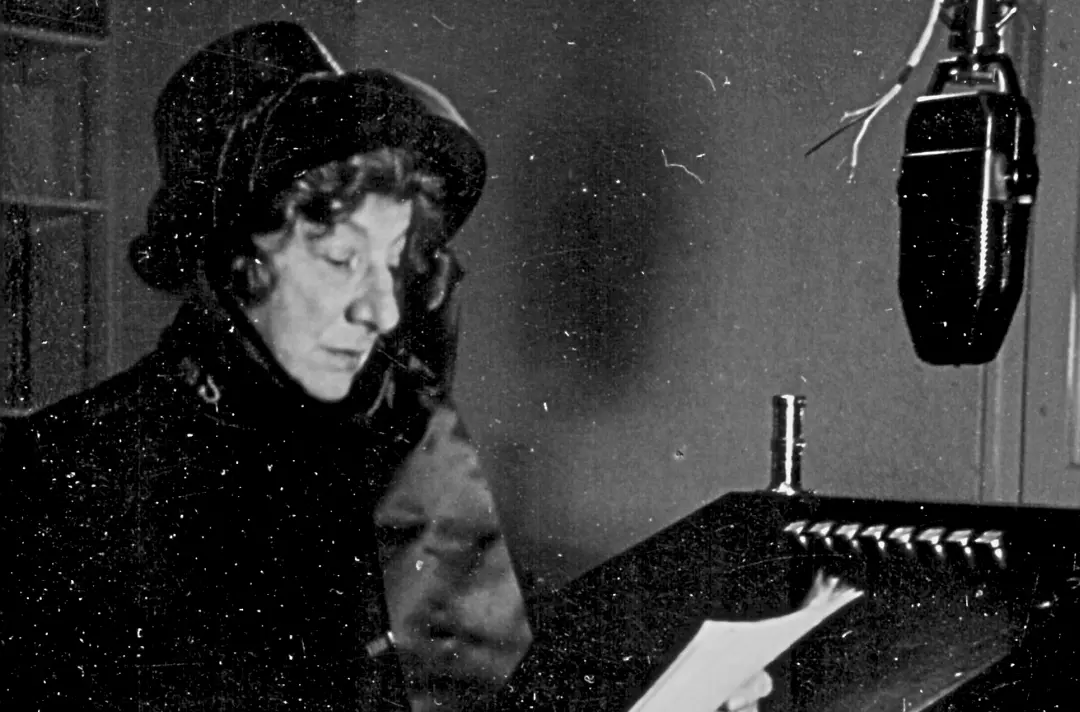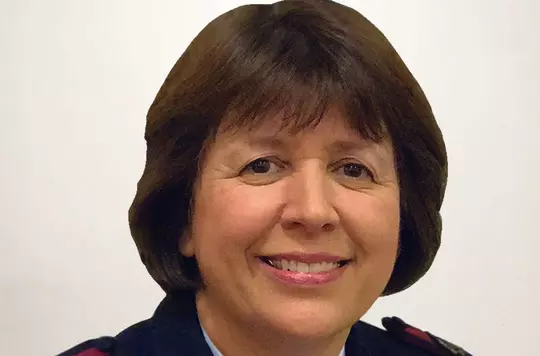24 March 2023
Love on the airwaves: A history of Salvation Army radio
George Tanton

George Tanton explores The Salvation Army’s early radio ministry.
It was from the Atlantic Ocean in 1908, aboard the SS Philadelphia, that General William Booth sent a wireless telegram to International Headquarters ‘to call upon my people everywhere for renewed desperate fighting’. He was one of many pioneers to recognise that wireless communication could help the gospel reach every household.
In December 1922, a vocal quartet from Salisbury Band made history by becoming the first Salvation Army music section on the radio, thanks to an amateur wireless enthusiast who had a licence to broadcast from his home. A year later, bandsmen from Govan became the first Salvationist music ensemble to broadcast on national airwaves.
In 1934, the radio enabled Salvationists to listen to retiring General Edward Higgins’s last message as head of the international Army, broadcast from Congress Hall in Clapton. Following that, in 1936, General Evangeline Booth even delivered a radio broadcast in Zurich during Ascensiontide celebrations.
During the Second World War in particular, Salvation Army radio broadcasts played a major role in reinforcing public morale. The BBC Home Service frequently featured Salvation Army music, which typically included performances from the International Staff Band and corps bands.
These radio slots also appeared in the BBC’s Forces Programme, which was listened to by British and Commonwealth servicepeople in the UK and abroad.
Radio broadcasts helped galvanise support for the Army’s relief work. High-profile public figures such as Lady Rachel McRobert, who lost two sons in the conflict, appealed through the radio on behalf of the Army in 1942.
After the conflict, radio was recognised by The Salvation Army as an effective promoter of its vision to rebuild a war-weary world. General Albert Orsborn, within hours of his appointment, was broadcasting over the Columbia network to American Salvationists in aid of the Army’s post-war recovery campaign, which sought to rehabilitate refugees and displaced peoples in war-torn countries, but also assisted wounded Allied servicemen and their families.
A radio broadcast on 22 March 1946 with Commissioner Catherine Motee Sladen, discussing the Army’s post-war relief efforts in Holland, Belgium, France and Germany, revealed how Salvationists were assisting ‘the starving people of Europe’ with ‘love that exceeds all political and national boundaries’. Commissioner Sladen emphasised the suffering she witnessed to those listening in the safety of their homes, as well as the Army’s assistance in ‘every phase of relief work’.
The radio allowed the Army to reach out to British audiences and provide spiritual comfort in times of mourning and remembrance. On 15 September 1946, General Orsborn delivered a nationwide broadcast from Croydon Citadel.
With technical support from BBC engineers, the broadcast coincided with the commemorative events for Battle of Britain Day. A BBC memorandum asked General Orsborn to ‘find an appropriate place in which to include a prayer of thanksgiving and commemoration’. It also said that the corporation was ‘keen that the broadcast should exhibit the freedom and informality which is so characteristic of the services of the Army’.
General Orsborn called upon listeners to remember before God ‘the young and brave who flung … their lives into a victorious struggle for our homeland and our freedom’.
Before the broadcast, the corps officer for Croydon Citadel, Major Gardiner, wrote to the General, stating that he hoped it would ‘be full of blessing and inspiration, not only to those gathered in the citadel, but also to that larger congregation who will “listen in”’. In response, General Orsborn confirmed: ‘We want the broadcast to do good, and to help the Kingdom of God.’
In April 1948, he went on to give the first worldwide radio broadcast by an international leader of the Army. From remembrance to spiritual encouragement, the radio was cemented as a tool with which the Army could help God’s Kingdom.
Written by

George Tanton
Editorial Assistant
Discover more

Introducing Salvationist Radio
Bethany Gibson introduces the new station for everyone linked to The Salvation Army.
Programmes
Browse programmes available on Salvationist Radio.

Behind the mic: Sing to the Lord with the ISS
Dorothy Nancekievill talks to George Tanton about producing the Sing to the Lord with the ISS radio show.

Being an 'ambassador of goodwill' in times of war and peace
George Tanton explores how British Salvationists offered fellowship to German prisoners of war during the Second World War.
